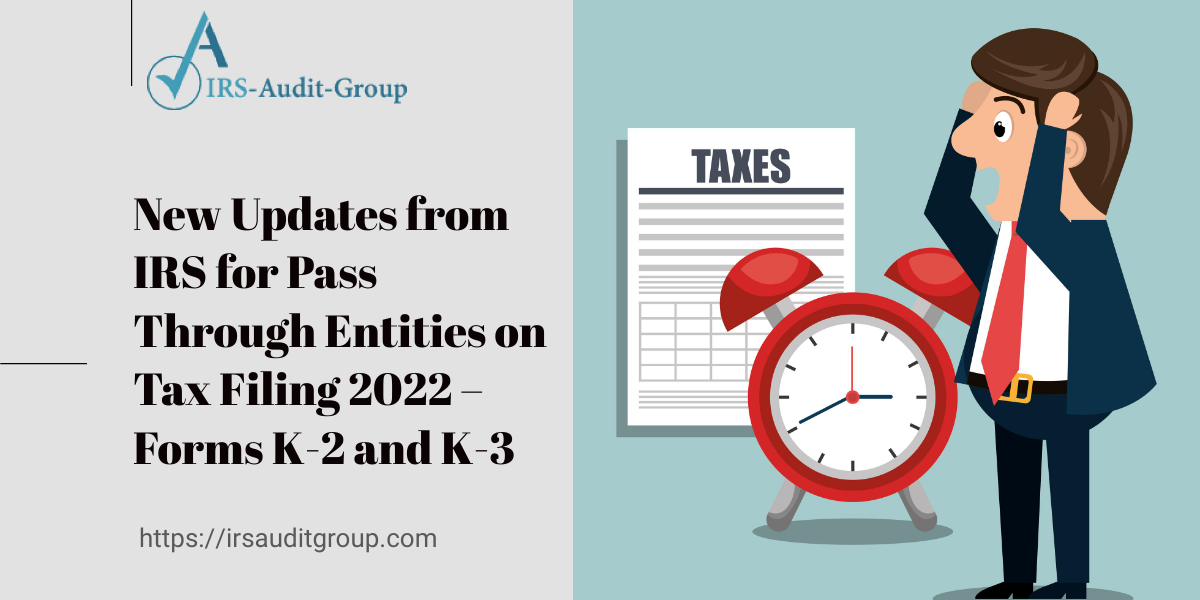The IRS issued an important update to the taxpayers of partnerships and S corporations on January 18, 2022. IRS introduced two new Schedules K-2 and K-3 for the tax year 2021. These two new forms are for reporting any sort of international income, deductions, credits, and other miscellaneous items on pass-through entity tax returns. Partnerships, S corporations, and US citizens with interests in foreign partners are required to file Schedules K-2 and K-3 with their 2022 tax returns. The purpose of these new schedules is to make it easier for taxpayers to provide their partners with the information they need for their respective US tax returns in a more consistent format.
Who is Required to File Schedules K-2 and K-3?
All pass-through entities with items of international tax relevance, including foreign partners and international activities, need to file the new schedules. Partnership with no foreign source income, no assets producing foreign source income, and no foreign taxes paid or accrued are still be required to file Schedules K-2 and K-3. Previously, international tax items were either reported on Schedule K-1, line 16, or provided to partners as a footnote to their Schedule K-1.
Penalty Relief for Schedules K-2 and K-3 During the Transition Period
While filing Schedules K-2 and K-3, the IRS recognizes reporting and compliance issues. Taxpayers, for example, may lack the systems and procedures necessary to obtain the detailed information to determine whether and how they must file a portion of the new schedules. For tax season 2022, fines for erroneous or incomplete reporting on Schedules K-2 and K-3 will not be applied if the partnership or S corporation proves that it made a good faith attempt to comply with the obligations to file or provide the schedules. The revised schedules are designed to give the taxpayers additional transparency and clarity on how to compute their US income tax liabilities from relevant international items.
Taxpayers need to examine and identify the procedural and reporting gaps that exist between prior-year obligations and the new Schedules K-2 and K-3 standards. Since the IRS is still issuing guidance and changes for Schedules K-2 and K-3, it is critical to remain vigilant and up to date.
For most taxpayers, the deadline for submitting 2021 tax returns or requesting an extension to file and pay the tax owed is April 18, 2022. Those who request an extension will have until October 17, 2022, to file their taxes.
IRS Audit Group is a tax audit representation firm in Los Angeles, California. We provide consultation and represent on behalf of you to IRS for any federal and state audits. Our certified attorneys have deep knowledge of IRS rules and norms and have represented many audit cases successfully. Get a free consultation with our tax professionals. Contact us to help you file your tax return for 2021 or any issues related to an IRS audit.
Email address: info@irs-audit-group.com
Telephone Number: (310) 498-7508

